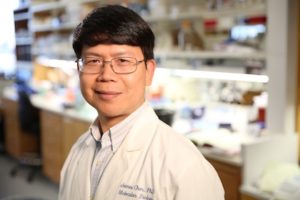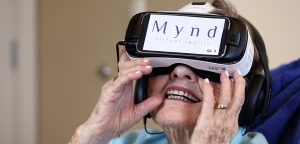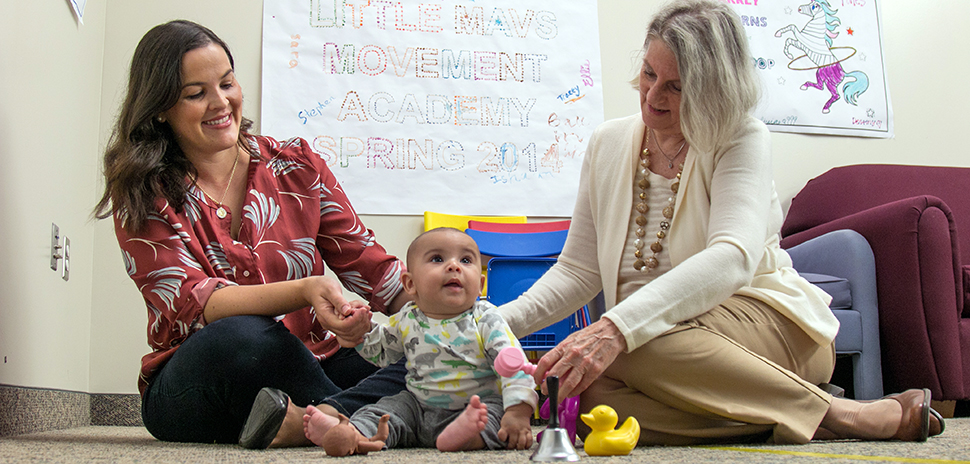![]() Every week, we pore through press releases and websites doing a little research of our own. We’re looking for scientists, professors, engineers, entrepreneurs—anybody, really—engaging in research and development across North Texas.
Every week, we pore through press releases and websites doing a little research of our own. We’re looking for scientists, professors, engineers, entrepreneurs—anybody, really—engaging in research and development across North Texas.
There’s plenty of good work being done. If you want to put R&D under your microscope, sign up for our e-newsletter.
UTA research seeks to help ease depression, PTSD in moms of pre-term infants
Researchers at the University of Texas at Arlington are working on a pilot intervention testing 40 new mothers of premature infants at John Peter Smith Hospital in Fort Worth looking at how to boost infant development, strengthen relationships between mom and infant, and in turn reduce depression and post-traumatic stress disorder in the mother of pre-term babies.
“Our intervention is novel because it is directed toward the infant but is anticipated to have latent effects on maternal-infant attachment and thus, the mental health of the mother.”
Cheryl Anderson
It’s an ambitious undertaking for the researchers who believe a combination of maternal, infant, and home assessments, education, and the use of an interactive, hands-on intervention taught to the mom can be the answer.
The interventions will be over a 12-month period with a final assessment done at 18 months after the child was born. Funding for the pilot program came from The Philip and Carolyn Evanson endowment.
The work is being done by Cheryl Anderson, an associate professor emeritus of nursing at The University of Texas at Arlington’s College of Nursing and Health Innovation, and Priscila Caçola, an associate professor of kinesiology at the college, who initially published information in this area of research in an article in the American Journal of Maternal Child Nursing.
“Our intervention is novel because it is directed toward the infant but is anticipated to have latent effects on maternal-infant attachment and thus, the mental health of the mother,” Anderson said. Herb Booth tells us more about the pilot study here.
Study shows common diabetes drug helps with neuropathic pain
A drug commonly used to treat diabetes may be a key to helping relieve the discomfort and mental deficits that often accompany a type of chronic pain called neuropathic pain, according to research being done at the University of Texas at Dallas.
“The longer you’re in pain, the more entrenched the impairment becomes.”
Stephanie Shiers
In their study, UTD researchers found that neuropathic pain responds to the drug metformin — one of the most commonly prescribed diabetes medications — as well as to pain relievers gabapentin and clonidine.
“People who are in constant pain have problems thinking straight sometimes. The longer you’re in pain, the more entrenched the impairment becomes,” Stephanie Shiers, a fourth-year cognition and neuroscience doctoral student at UT Dallas and lead author of the study recently published in the Journal of Neuroscience, said in a UTD release. “These impairments aren’t addressed by existing therapeutics.”
What causes neuropathic pain? It’s the result of damage to nerve cells, as opposed to other body tissue, UTD said. Some examples of neuropathic pain include phantom limb syndrome, pain resulting from a stroke, and the “pins and needles” sensations associated with diabetes. Find out more about the research here.
UTSW researcher wins $3M Breakthrough Prize in Life Sciences
UT Southwestern biochemist Dr. Zhijian “James” Chen has won a prestigious 2019 Breakthrough Prize in Life Sciences for his discovery of the cGAS enzyme that launches the body’s immune defense against infections and cancers, UT Southwestern said.

Dr. Chen
He will receive $3 million for winning the prize.
The enzyme Chen discovered patrols the interiors of cells and triggers the immune system in response to DNA, UTSW said in a release.
UTSW said that the four 2019 Breakthrough Prizes in Life Sciences, along with prizes in physics and mathematics, will be presented Nov. 4 during a live awards ceremony in the Silicon Valley that will televised around the world.
The Breakthrough Prize in Life Sciences program was founded in 2013 and is sponsored by Sergey Brin, Priscilla Chan and Mark Zuckerberg, Ma Huateng, Yuri and Julia Milner, and Anne Wojcicki. Each winner receives the $3 million award.
MyndVR forms advisory board, national research coalition
MyndVR, the Addison-based tech, health, and wellness company that specializes in virtual reality solutions for people ages 55 and over, announced it created the MyndVR Science Advisory Board and a national research coalition involving researchers from universities nationwide.

A resident of The Legacy Willow Bend enjoys a virtual reality experience. [Photo courtesy The Legacy at Willow Bend]
The company said in a release that the coalition will study the medical efficacy of virtual reality on seniors with and without age-related conditions. MyndVR said the independent researchers will have autonomy in the design of their studies and will include teams from The University of Texas at Dallas’ Center for BrainHeatlth, Indiana University’s Eskenazi Center for Brain Care, Florida Atlantic University’s Visual Mind Lab, the University of Pennsylvania School of Nursing, Panola College’s Occupational Therapy Assistant Program, and St. Barnabas Health System in the Pittsburgh, Pennsylvania area.
MyndVR’s technology has been deployed in more than 18 states serving tens of thousands of seniors. Recently, I wrote recently about how its tech is being used in a partnership with the Long Island State Veterans Home at Stony Brook University in New York to help aging veterans cope with the effects of PTSD and depression.
READ NEXT
![]()





























